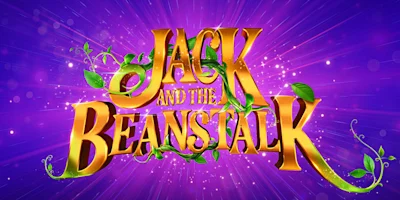
Director John O'Connor: 'Oscar Wilde's 'trial of the century' makes for gripping, uncomfortable viewing'
Oscar Wilde may have been responsible for penning some of literature's greatest plays, but he found himself at the centre of his own piece of theatre as he appeared in the dock during an infamous trial. Wilde's grandson Merlin Holland has taken the transcripts of his grandfather's trial and created a verbatim play to give a glimpse inside the incredible trial. Director John O'Connor tells us why Wilde's trial should be told on stage.
More than any other 19th-century writer I can think of, Oscar Wilde seems to have increased in stature as time has gone on. His plays are always in fashion and there are countless biographies, films and documentaries about the great man. Social media is full of Wildean quotes that fit neatly into 280 characters and his image has found its way onto t-shirts and posters, like Che Guevara or James Dean.
We feel as though we know him, but do we really? I thought I knew him well until someone once asked me why Wilde went to prison. I realised to my horror that I didn't fully know. Wasn't it something to do with his sexuality? Or the Marquess of Queensberry? Or the vengeance of the Victorians?
I decided to do some digging and most of what I discovered shocked and astonished me. For a start, Thursday 14 February 1895 was the triumphant opening night of The Importance of Being Earnest and the zenith of Oscar Wilde's career. Yet within 100 days, he found himself disgraced, bankrupted and sentenced to two years of hard labour. Was there ever a more dizzying fall from grace outside one of Shakespeare's tragedies?
It didn't take long to realise that this story would make a fascinating play. I wondered what had happened during the trials and what Wilde had said. Was he persecuted or the author of his own downfall? I went in search of the transcripts but they had all been 'lost' (or possibly suppressed) by the government of the time. That was until the transcript of the libel trial was discovered by Merlin Holland after more than 100 years.
Merlin is Wilde's grandson and the sole executor of his estate. He also thought the story of Wilde's trials would make for a wonderful play and generously offered his time not only to answer my questions but to co-write the script with me. His eye for historical accuracy was balanced by my sense of theatricality and so we came up with a form of verbatim theatre that captures the spirit of Oscar Wilde in all its paradoxical complexity and wit.
The main challenge was not what to include, but what to take out! The libel transcript runs to 80,00 words and Wilde's testimony is the closest thing we have to a recording of his voice. However, we had a duty to tell the story in an efficient and entertaining way so we had to be brutal in cutting out some of Wilde's more brilliant flights of fancy that didn't advance the narrative.
Wherever possible, we have used the original words spoken in court. The first half deals with the dramatic events of the libel trial - Wilde vs Queensberry - as Oscar goes from Prosecutor to Prosecuted in the space of three devastating days. The second half carefully reconstructs the criminal trial - 'Regina vs Wilde' - from newspaper reports, eyewitness accounts and documentary evidence.
What's fascinating about the play is that we get to hear Wilde's actual words spoken under pressure and off the cuff. The audience has a ringside seat at the so-called 'trial of the century' and it makes for gripping, if sometimes uncomfortable, viewing.
We tend to think of Wilde speaking in perfectly constructed epigrams but in court we hear his unguarded words, spoken under great pressure and up against the ropes. He stumbles and evades but also surprises us with flashes of lightning wit and defiance, such as this:
Carson: Did you become intimate with a young man named Conway?
Wilde: Oh, yes, at Worthing.
Carson: What was his Christian name?
Wilde: Alfonso.
Carson: Do you know that his previous occupation had been selling newspapers on the pier at Worthing?
Wilde: No, I had no idea that he had any connection with literature in any form.
Oscar is genuinely funny in court but perhaps the Old Bailey was not the ideal place to be amusing. As he scores points with the wags in the gallery, he loses credibility with Judge and you can feel the noose tightening as the case hurtles towards its shocking conclusion. The actors address the audience as though they are the jury and that places them right in the heart of the action. They can really feel what it's like to be in the company of a flawed genius, as this less than ideal husband is tragically reduced to a man of no importance.
The show raises important questions in the audience's minds about individual liberty, exploitation and the role of the Establishment in bringing Wilde down. They can judge for themselves if Oscar is hero or villain, saint or sinner, victim or fool. As he said himself, 'the truth is rarely pure and never simple'.
- by John O'Connor
The Trials of Oscar Wilde is at the Greenwich Theatre from 2nd to 6th April, and tours the UK.
Originally published on









